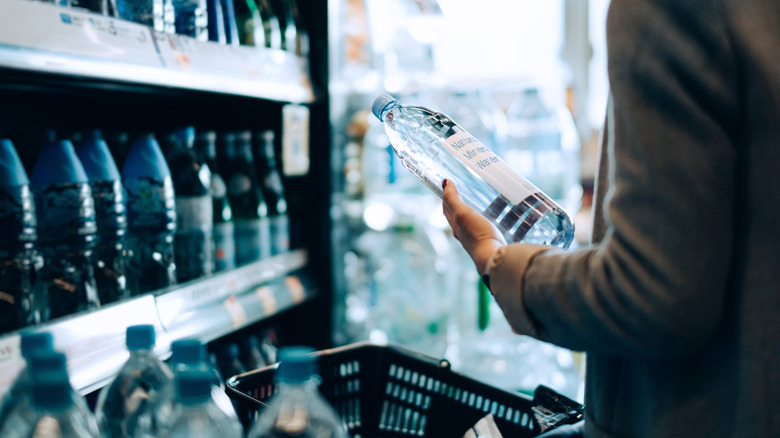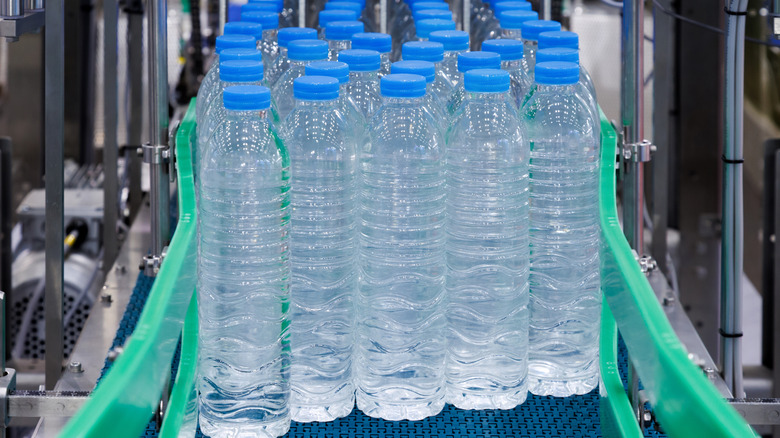We've Finally Found The Worst Bottled Water Brand
Water is the source of life, but that doesn't mean you can't slap a price tag on it. According to a study by the NRDC, a casual approach is exactly what some bottled water companies take. Its findings showed that 25% of products consist solely of tap water, with no extra frills or special recipes, just something customers could have gotten from their sink. After hearing that, Tasting Table couldn't resist putting grocery stores to the test, investigating 29 popular water brands. While there were plenty of enjoyable beverages, there was one bottle our reviewer could never recommend — Pure Life was a certified non-starter. While technically filtered, it definitely flagged for glorified tap water status. The flavors were lacking. But, worse still, the bottle had an inescapable taste of plastic, hardly instilling confidence in its potential as a healthy, refreshing drink.
True connoisseurs know that not all H2O tastes the same, right? But even if we were stuck on a desert island, Pure Life wouldn't be the bottle we prayed for. While some customers enjoyed the water, others complain of a weirdly sour and bitter taste. Fancy a safer bet? Opt for Proud Source instead; the brand even uses infinitely recyclable aluminum bottles — take that, plastic.
Why do bottled waters taste different?
If our investigation cleared one thing up, it's the fact all bottled water tastes different. There were crisp, purposefully artificial, notably nondescript, granite-filtrated, carbonated, and natural-tasting products. Even "nothing" is noteworthy when sampling water (it's better than plastic-flavored, that's for sure). Spoiler alert: Most of all, the source matters when it comes to picking the best tasting bottled water. Its place of origin dictates the composition of dissolved minerals and Ph level; calcium, magnesium, sodium, and iron all impact flavor.
There are multiple reasons why one bottle tastes different from another, including packaging, filtration techniques, and added ingredients like fruit. It's not just down to the recipe and where water comes from, though, but how it's stored. Do you know the worst place to store your bottled water? In short, anywhere hot or in direct sunlight poses a serious hazard. When packaged in plastic, these environments risk leaching, a process whereby chemical toxins leak into the water inside. It's one thing to evaluate the taste of a brand's product, but be sure to weed out genuine contamination. Not all flavor differences are down to recipe variations; always consider storage conditions when purchasing bottled water.

